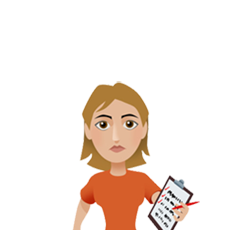3 Foundations That Successful Reward Systems Are Built On

Keep Rewards In Your Toolbox
Even if kids did come with an instruction manual, it would be written for a neuro-typical child. So it's no wonder that living with the chaos of ADHD can seem overwhelming for parents who are trying to do a good job, and just want to know how to do it better!
Here's the good news: studies show – and our experience as parents and coaches confirms – that our kids respond well to rewards. A thoughtfully structured reward system is one of the most powerful tools in a parent's toolbox for behavior management.
But a tool is only helpful if you know HOW to use it, right? So let me make it simple for you. There are 3 Foundations of a Successful Reward System.
Article continues below...
Want to Motivate Kids?
Download a free tipsheet "The Parent's Guide to Motivating Your Complex Kid" to help your child find the motivation to do... anything and everything!
3 Steps to Create a Successful Reward System
1. Build a Strong Relationship with Your Kid
When I became a CHADD Parent to Parent instructor, I learned that “Rules without relationships lead to rebellion. Rules with relationships lead to success.” If the only times we're interacting with our kids are when we're punishing or criticizing them, we're going to start sounding like Charlie Brown's teacher. All they will hear is a blur of negativity – and that's all you'll feel, too.
It's important to make an effort to connect with your kids on their level. Play with them, laugh with them, listen to them, find ways to show them love. I know how it is: you spend all day at work, and by the time you get home, you need to get homework done, dinner on the table, and your children off to bed. It feels like you don't have a lot of time. But in truth, relationships are worth the effort to make the time you have together count!
2. Find out What Motivates Your Child
The ADHD brain cannot complete a task or activity if it is not genuinely interested. You've probably heard me say this before, but ADHD kids don't have easy access to their “Just Get It Done” button. When I don't really want to do something, I push the button and just get it done. Otherwise, the dust bunnies would have taken over my house long ago. But for my kids it's not so easy.
Your ADHD kid has this button, but imagine it's hidden inside a glass box, like a fire alarm. You have to break that glass to get to the button. A genuine motivator is the way to do that. To begin finding your child's motivations, ask yourself if your child responds favorably to positive or to negative consequences. For most kids, punishments produce immediate results, but they are not sustainable. They exhaust us, our kids and the relationship. Positive rewards have a more lasting impact.
How do you know what really motivates your child? Talk to her. What are her favorite activities? What does she like to do in her free time? What are her favorite TV shows or movies? And remember, rewards don't have to be big, and they don't have to cost money. When my daughter was about 9 or 10, she loved music. Not my music, of course! She was genuinely motivated by being able to choose the radio station on the way to school.
3. Choose a SMART Target
Borrowing SMART from my corporate days, you want to make sure that reward systems are: Specific, Measurable, Achievable, Realistic, and Time-Specific. Don't try to take on everything in a single reward system. Start small, and focus on one thing at a time. By setting SMART goals, you can maximize the chance of success for you and your kid!
Make It Work!
These are the fundamental pieces of the reward system puzzle. Does that mean if you have a strong relationship with your kid, great motivators, and SMART targets that it's always easy? No! You're human, so is your kid. There will be missteps along the way. But with effort, time, and these foundations in place, those slip-ups will not knock down all that you have built.
You can empower your child to make great changes, one step at a time, with an effective reward system. And as an added bonus, you'll go from feeling like the bad guy all the time to feeling like the superstar parent you are!


